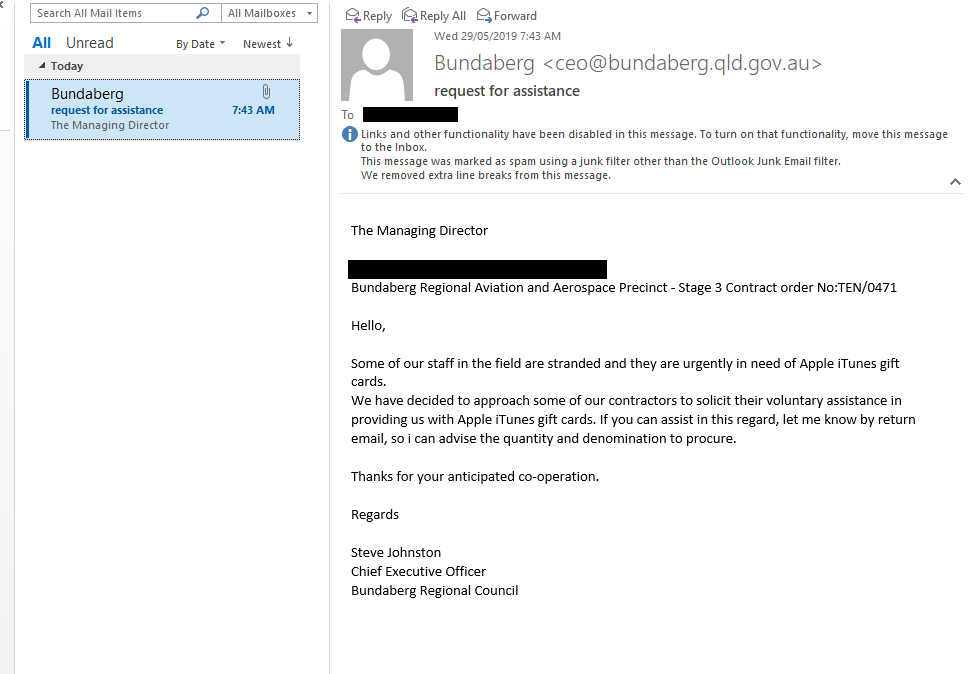
Bundaberg Regional Council has issued a warning to its suppliers after being targeted by an email scam.
A local supplier notified Council of the fraudulent behaviour after receiving an email from what appeared to be a legitimate Council email address requesting assistance in the form of gift cards.
Chief Executive Officer Steve Johnston said it’s a fraudulent email that should be ignored.
“Any emails purporting to be from Council with references to iTunes or other gift cards are scams and should be deleted,” he said.
“People in doubt about the authenticity of an email should call the sender or Council’s switchboard on 1300 883 699 to validate the message, and follow the ACCC’s advice on Scamwatch.”
Scamwatch reports increase in business email scams
Earlier this month the Australian Competition and Consumer Commission (ACCC) reported that last year Australian businesses suffered losses exceeding $7.2 million in the more than 5800 reported scams.
“Much of this increase is due to the $3.8 million reported lost to sophisticated ‘business email compromise’ scams,” the report stated.
“When combined with losses reported to the Australian Cybercrime Online Reporting Network, these scams cost Australian businesses over $60 million.”
Visit wwww.scamwatch.gov.au to learn more about scams, how to protect yourself and your business and to report fraudulent activity.
Phishing messages look legitimate
ACCC’s Scamwatch warns that phishing messages are designed to look genuine, and often copy the format used by the organisation the scammer is pretending to represent, including their branding and logo.
They will take you to a fake website that looks like the real deal, but has a slightly different address. For example, if the legitimate site is ‘www.realbank.com.au’, the scammer may use an address like ‘www.reallbank.com’.
If you provide the scammer with your details online or over the phone, they will use them to carry out fraudulent activities, such as using your credit cards and stealing your money.
Protect yourself
- Do not click on any links or open attachments from emails claiming to be from your bank or another trusted organisation and asking you to update or verify your details – just press delete.
- Do an internet search using the names or exact wording of the email or message to check for any references to a scam – many scams can be identified this way.
- Look for the secure symbol. Secure websites can be identified by the use of ‘https:’ rather than ‘http:’ at the start of the internet address, or a closed padlock or unbroken key icon at the bottom right corner of your browser window. Legitimate websites that ask you to enter confidential information are generally encrypted to protect your details.
- Never provide your personal, credit card or online account details if you receive a call claiming to be from your bank or any other organisation. Instead, ask for their name and contact number and make an independent check with the organisation in question before calling back.







